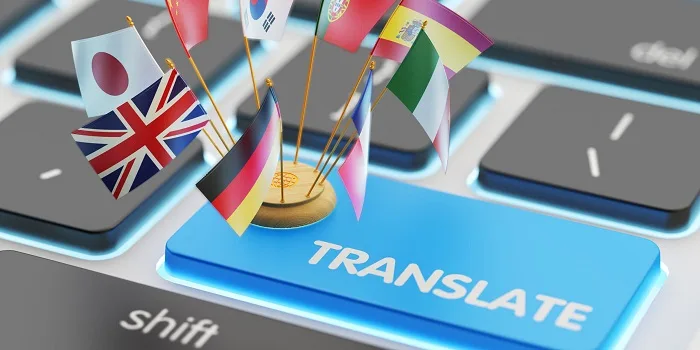Earning Money Online with Document Translation
Earning money online has become a prevalent trend, offering numerous opportunities for skilled individuals. One such promising avenue is document translation. As globalization continues to connect people and businesses across the world, the demand for translation services is on the rise. This article will delve into why translators are in high demand, what document translation entails, successful examples of localization, the potential of this field, and where to find translation work.
Why Translators are So in Demand Nowadays
The increasing interconnectedness of the global economy has led to a surge in demand for translators. Businesses are expanding their reach across borders, necessitating the translation of various documents to communicate effectively with international audiences. Furthermore, the rise of digital content, including websites, marketing materials, and e-books, has amplified the need for professional translation services. Companies strive to localize their content to cater to different linguistic and cultural contexts, making the role of translators crucial. This global shift underscores the importance of precise and culturally sensitive translations to ensure successful communication and market penetration.
Another significant factor contributing to the high demand for translators is the legal and regulatory requirements in different countries. Documents such as contracts, patents, and compliance reports need to be accurately translated to meet local standards. Misinterpretation or inaccuracies in these translations can lead to severe legal consequences. Therefore, businesses invest in professional translators who possess not only language proficiency but also an understanding of the specific legal and cultural nuances of the target market.
Translation of Documents: What It Is and What It Is For
Document translation involves converting written content from one language to another while preserving the original meaning, tone, and context. This process requires a deep understanding of both the source and target languages, as well as the cultural nuances that influence interpretation. Translators must also be adept in the subject matter to ensure the accuracy and relevance of the translated document. Common types of documents that require translation include legal contracts, technical manuals, medical records, financial statements, and marketing materials.
The purpose of document translation is multifaceted. For businesses, it facilitates communication with international clients and partners, enabling them to expand their operations globally. In the legal domain, translated documents ensure compliance with local regulations and help in resolving cross-border disputes. In the medical field, accurate translation of patient records and research papers is vital for the exchange of critical information across different healthcare systems. Overall, document translation plays a pivotal role in bridging linguistic gaps and fostering global collaboration.
Examples of Successful Localization
One notable example of successful localization is the adaptation of video games for different markets. Companies like Nintendo and Sony invest heavily in translating and localizing their games to cater to diverse audiences worldwide. This involves not only translating the text but also adapting cultural references, voiceovers, and user interfaces to resonate with local players. Such efforts have significantly contributed to the global success of their gaming franchises.
Another example can be found in the e-commerce industry. Companies like Amazon and Alibaba have localized their websites to serve various international markets. This includes translating product descriptions, customer reviews, and payment options. By doing so, they enhance the user experience and build trust with their global customer base, leading to increased sales and customer loyalty.
In the realm of literature, the translation of books has enabled authors to reach a broader audience. For instance, the Harry Potter series by J.K. Rowling has been translated into over 80 languages, making it accessible to millions of readers worldwide. This not only boosts the book’s sales but also enriches the cultural exchange by sharing stories and ideas across different languages and cultures.
How Promising the Direction Is
The field of document translation is poised for significant growth. The continuous expansion of international business, along with the increasing importance of digital content, ensures a steady demand for translation services. The rise of remote work and freelancing platforms has also made it easier for translators to find opportunities and work with clients globally. Additionally, advancements in technology, such as machine translation and translation management systems, are enhancing the efficiency and accuracy of translation projects, making it an even more attractive career option.
Moreover, the translation industry is diversifying into specialized fields such as legal, medical, and technical translation. These niches require a higher level of expertise and offer lucrative opportunities for translators with specialized knowledge. For instance, legal translators who can navigate complex legal terminology and regulations are highly sought after by multinational corporations and law firms.
The growing emphasis on cultural sensitivity and localization further underscores the potential of this field. Businesses are recognizing that effective translation goes beyond literal word-for-word conversion; it involves adapting content to fit the cultural and social context of the target audience. This demand for high-quality, culturally aware translations creates a favorable environment for professional translators to thrive.
Additionally, government and non-profit organizations increasingly rely on translation services to communicate with diverse populations. From translating public health information to educational materials, translators play a crucial role in ensuring that essential information is accessible to all, regardless of language barriers.

Where You Can Find Work of This Kind
Numerous platforms and agencies offer opportunities for translators to find work. Freelancing websites like Upwork, Freelancer, and Fiverr have dedicated sections for translation services, allowing translators to connect with clients from around the world. These platforms provide a flexible working environment where translators can choose projects that match their skills and interests.
Translation agencies are another viable option. Companies like TransPerfect, Lionbridge, and SDL hire professional translators for a wide range of projects. These agencies often require translators to pass rigorous tests to ensure their proficiency and reliability. Working with an agency can provide a steady stream of projects and the support of a structured environment.
Additionally, online job boards and professional networks such as ProZ.com and TranslatorsCafe.com cater specifically to the translation community. These platforms offer job listings, industry news, and resources for professional development. They also provide a space for translators to connect, share knowledge, and collaborate on projects.
For those looking to specialize in specific industries, networking with professionals and attending industry conferences can open doors to niche markets. Legal, medical, and technical translators can benefit from joining relevant professional associations and participating in continuous education programs to stay updated with industry trends and requirements.



